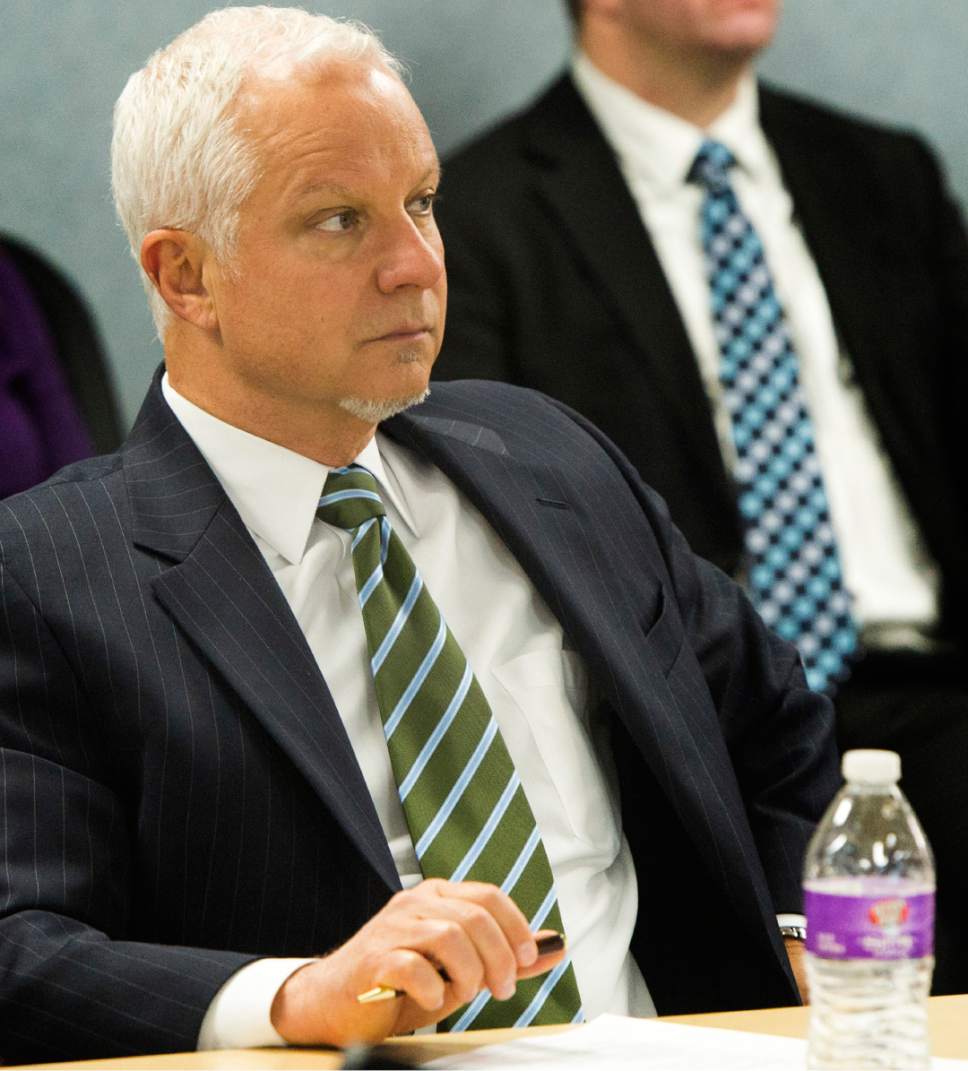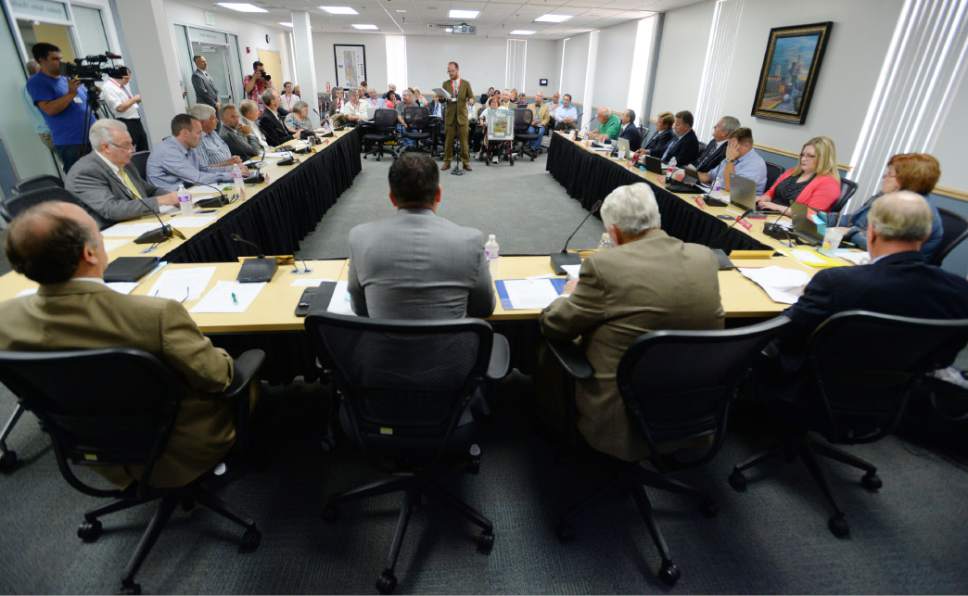This is an archived article that was published on sltrib.com in 2017, and information in the article may be outdated. It is provided only for personal research purposes and may not be reprinted.
The Utah Transit Authority wants the public to know it has enacted reforms that it hopes will prevent future scandals associated with board members using their public positions for potential profit or having the appearance of such conflicts of interest.
What it doesn't want is for the public to see for itself the disclosure forms that might reveal whether UTA board votes on a given project could benefit one or more of its members.
The Salt Lake Tribune this week asked the State Records Committee to force UTA to release financial-disclosure forms board members are required to submit that officials say will help prevent corruption or suspicions of self-dealing at the agency.
The documents are central to UTA reforms in the wake of scandals and an ongoing federal investigation.
In a news conference last month when U.S. Attorney John Huber and UTA jointly announced the transit agency's immunity deal with prosecutors, UTA officials said they had ushered in a new era of transparency, accountability and oversight.
"We really believe that we have now in place the strictest conflict-of-interest policies of any organization in the state," UTA General Counsel Jayme Blakesley said during the April news conference.
UTA's 16 board members now must submit documents disclosing their assets, sources of income, debts, outside positions, agreements, gifts and travel — although they are not required to report dollar amounts or values. The disclosures are reviewed by UTA attorneys and compliance officers.
Board members also must submit a document in which they list what they perceive to be likely conflicts of interest. That limited disclosure — which has long been required but generally contains few details — is labeled as a public record by the agency. In his letter denying The Tribune access to the more specific financial-disclosure forms, UTA President and CEO Jerry Benson wrote that it was in the public's interest to keep the records private.
"The personal privacy interests involved are significant," Benson said, "and the public interest is served by protecting those privacy interests to ensure that the conflict review process implemented by UTA can be performed based on full, candid disclosures."
Benson assured that "UTA is dedicated to openness, transparency and increasing opportunities for public engagement. We recognize that the residents of the Wasatch Front deserve responsible stewardship of their investment in the regional transit system."
The more general conflict-of-interest statements released by the agency provide little information.
Ten board members submitted this year that they had no conflicts. New trustee Brent Taylor, North Ogden's mayor, noted that his father is a FrontRunner operator, as previously reported. Of the rest who mentioned a potential conflict, most only listed their positions on other public bodies.
UTA officials use the fuller financial disclosures to determine whether board member interests actually represent conflicts, which members themselves might not know about or recognize as problematic.
At a board meeting earlier this month, UTA auditor Riana De Villiers told the board that she found in the more thorough financial-disclosure forms that one unnamed board member has an investment property within a half-mile of a "bus rapid transit" station, a potential conflict. Blakesley told the board that studies show property values benefit when they're within a half-mile of a station.
Board member Necia Christensen said the trustee in question must be her, and she noted that she owns a rental property within a half-mile of transit — although only when measured as the crow flies.
UTA attorneys said she was not the board member with the issue, again without identifying that trustee.
Good-government activists said the agency could decide to provide the records if it wanted to be transparent and that the public has a right to see and judge for itself whether the internal checks in place really catch all potential board conflicts.
"No one should" accept that the internal auditing is sufficient, said Salt Lake City attorney David Irvine, who was for years affiliated with Utahns for Ethical Government (UEG). That is true, he said, "particularly when it comes to the Utah Transit Authority, which has probably the most checkered past of any public entity in Utah history."
Kim Burningham, a former legislator and state school board member who had headed UEG , said private individuals who serve on a public body give up a layer of their private lives, a concept the Utah Supreme Court has affirmed in its past records decisions.
"When you assume a public responsibility using public funds and make public decisions," Burningham said, "one of the responsibilities that goes along with that is to make your private information available so we know there are no conflicts."
The records panel has tentatively scheduled a July 13 hearing on The Tribune's appeal.
Twitter: @TaylorWAnderson
Reporter Lee Davidson contributed to this report.







